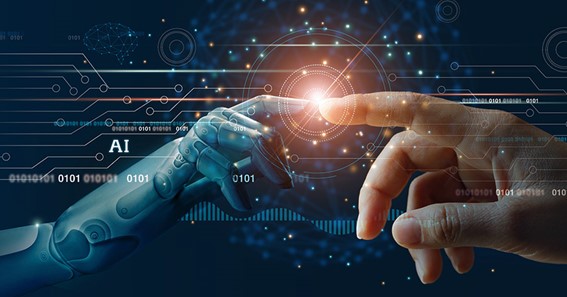Accountants and auditors are of many professions that are starting to realize that Artificial Intelligence (AI) technology could replace some of their job tasks. Accountants and auditors have always been in high demand in the workforce. However, there is a shake-up coming to this profession that could leave accountants with fewer career options. Automation is becoming increasingly more common in accounting practices and soon the need for human accountants could be eliminated.
While there is no doubt that AI has the potential to replace some accountant positions, it would be premature to say that all accountants will become obsolete in the future or that AI will make accounting jobs obsolete. However, it will have a significant impact on the way accountants do their job and what their responsibilities will be moving forward. For instance while the AI can understand the three golden rules of accounting, the companies would still need accountants to keep an oversight on the software.
Workers in almost every industry have had to learn new skills as technology has advanced. The accounting industry is no different; however, the future of work and the impact of AI on accountants is still a topic of debate. Proponents of AI and ML believe that by using automation and machine learning, accountants can focus their time on higher-value tasks, like financial planning, implementing business strategies and advising clients. Other experts believe that the accounting industry will be affected in much the same way as other industries, with AI replacing low-skilled task-oriented job positions.
Click here – How to Boost Your eCommerce Website with Popular Digital Marketing Tactics
What is the current scenario?
AI is not a new technology in accounting. For decades, accountants have used computerized spreadsheets to calculate taxes, forecast expenses, manage cash memo and prepare budgets. The advent of AI technology only means that the calculations are now being handled by machines instead of humans. Most of the time spent on these tedious tasks can be reduced by as much as 75 per cent and still be able to maintain the same level of accuracy.
Accounting software providers have been embracing AI technologies for years. Many software has been using artificial intelligence since 2016 to help with the mundane tasks that need to get done, including risk assessment, invoice categorization, bank reconciliations, and audit processes like expense submissions and invoice payments.
Most users only have to enter data once into AI-enabled programs, which then automatically categorize the information into appropriate categories so it can be used for other tasks. The main advantage of AI-based programs is that they can automate repetitive tasks that accountants previously had to do manually and with errors.
For example, in some software tax calculation algorithms are constantly learning from past tax returns and can provide more accurate estimates of likely tax results than what a human accountant would arrive at. AI also helps identify patterns that accountants often miss in their workday because of the sheer volume of data they must process each
Not replace but complement
AI will never replace accountants. It will only ever compliment them. AI will never take over the role of accountants – at least not fully. Accountants may soon lose some basic, low-level accounting functions such as compiling order books or calculating bank balances. But that doesn’t mean everything about their jobs will disappear. For example, AI will never be any better at interpreting a client’s confidential financial information than a human accountant – and in many cases, it won’t need to be
Click here – Pollution Blues: Which Is the Best Cream To Opt For?



